|
Location:
Lussac les Ch�teaux, Vienne. |
Grid Reference:
46.40� N, 0.72� E. |
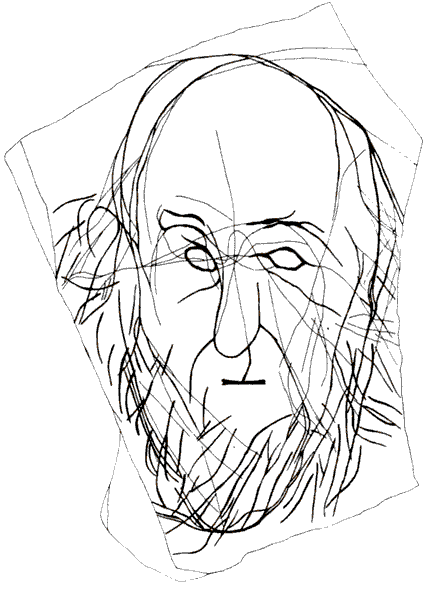
 La Marche:
(Magdalenian Cave Art).
La Marche:
(Magdalenian Cave Art).
The
cave located at La Marche in France was discovered
in 1937 by Leon Pericard, a French amateur
scientist, and Sthane Lwoff, a palaeontologist. They
spent five years excavating the cave and found more
than 1,500 pieces of slate with painted carvings on
them.
These images are very difficult to understand.
Sometimes, several objects in the drawings would
overlap each other. Nevertheless, in the eyes of
archaeologists, these drawings carry special
meaning. In the La Marche cave, you can find
paintings of lions, bears, antelope, horses, and 155
vivid human portraits dating from around 15,000 BP,
a time long before the rise of the great
civilisations and a time when Europe was firmly in
the grip of an Ice Age.
|
La Marche Cave:
(Grotte de la
Marche). |
When
French scientist L�on P�ricard excavated La Marche
between 1937 and 1942 he catalogued over 1,500 slabs of
limestone that had been carefully placed on the floor
(1).
In addition, many of the engravings show people wearing
hats, robes and boots. Although this does not coincide
with the previously accepted view of prehistoric people,
it may be because paintings depicting clothed humans
were destroyed in the other caves while scientists were
studying the walls (In Lascaux, for example, the floor
was obliterated to make way for visitors in the 1950s.
There is no way of knowing if anything significant was
destroyed).
P�ricard
originally found 69 human figurines in the caves. There were 49
etchings of heads alone and 18 with the whole body. All
together, there were 50 etchings of females, 12 of males and 5
that were of indeterminate gender. Eventually, 155 human
figurines were found. (8)
The walls of
the cave were not decorated in any way.
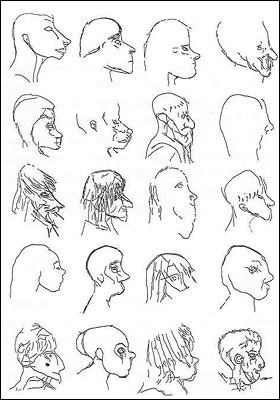
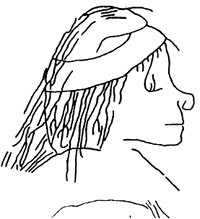
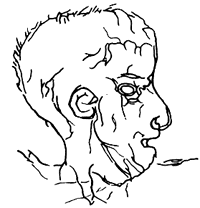
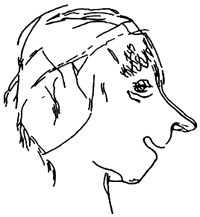
The official report from the French Prehistoric
Society states that the findings at La Marche are completely
authentic.
Clothing:
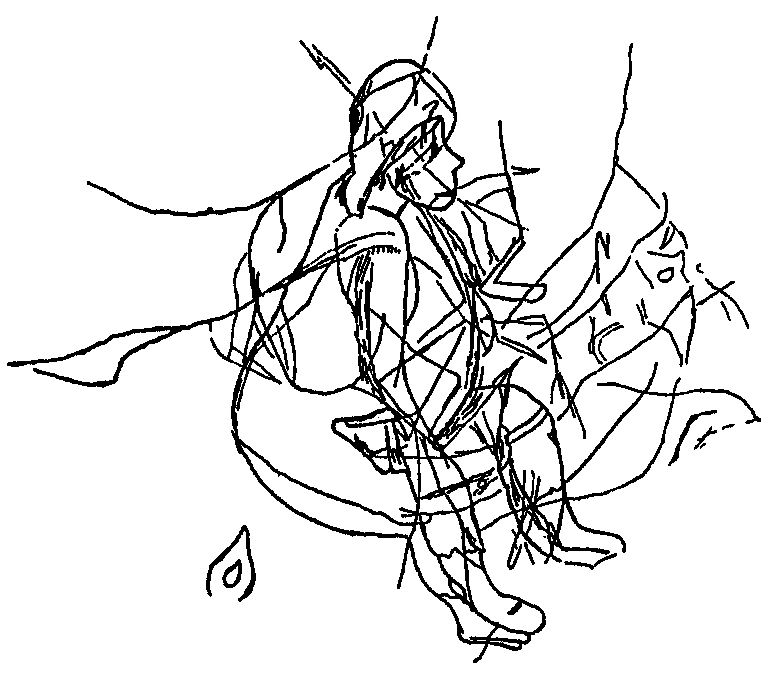
Some of the
engravings show people wearing boots, hats, belts and what appears
to be clothing.
Writing.
Certain findings at
La Marche have led to greater debate over the origin and development
of writing systems. In particular, an engraved reindeer antler from
La Marche has provided proof that more sophisticated systems of
symbols existed during the Paleolithic period than once believed.
Francesco d�Errico, an archaeologist who analyzed the antler, sees
it as proof that humans at this time had �artificial memory
systems,� which enabled them to record various groupings of
information (9)
Pleaides.
Additionally, Dr.
Michael Rappenglueck has noted pits arranged like certain
constellations on the cave floor. One constellation on La Marche�s
floor, the Pleiades, has been found engraved on the walls of
Neolithic caves, but rarely on those of the Palaeolithic. Dr.
Rappenglueck has suggested that these pits might have been filled
with animal fat and set on fire to replicate the stars in the sky.
If so, Rappenglueck ventures, this site could mark the origin of the
candlelit festivals in the Far East that also celebrate the Pleiades.
Gallery of Images: La
Marche.
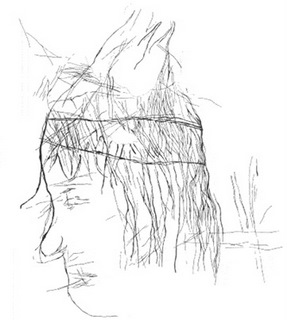
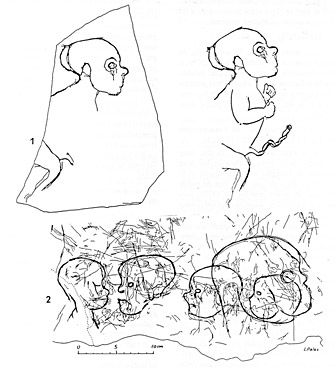 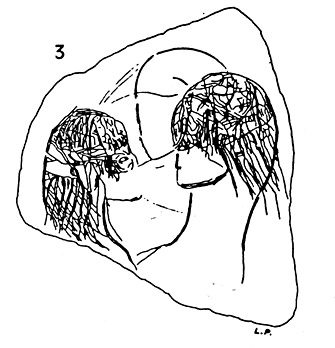
Images from slate
No's 35 and 37 (left), and No 22 (right).
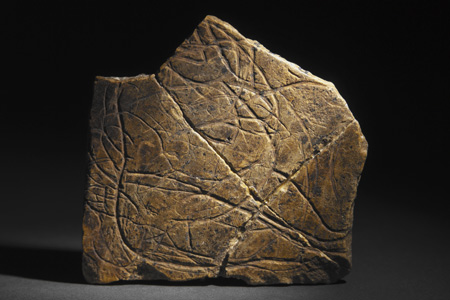
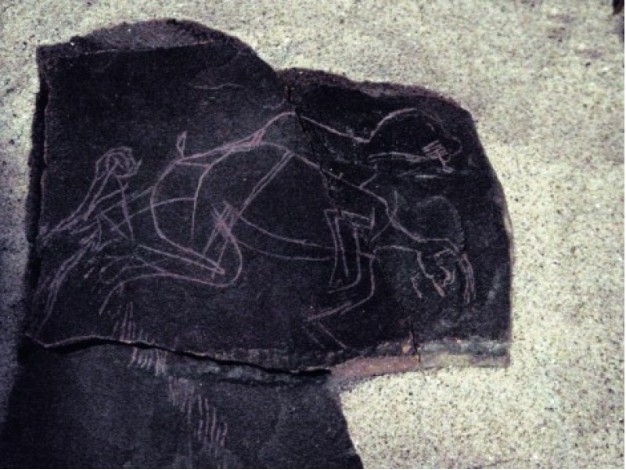
Left: Seated lady
(From La Musee Sainte-Croix), Right: Magdalenian Erotic art..?
(Prehistoric
Cave-art: Homepage)
(Chauvet
- The oldest Cave-art in the World)
(Lascaux)
(Other
Prehistoric French Locations)
(France Homepage) |










